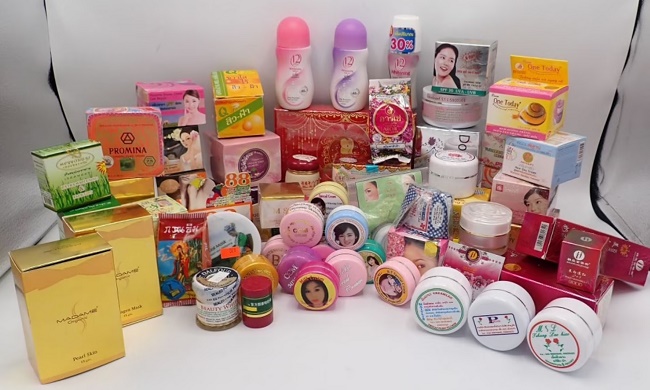– Advertisement –
Toxic watchdog BAN Toxics urges content creators and online sellers to remove social media content, advertisements, and listings promoting prohibited and banned skin-lightening beauty products containing hazardous mercury.


The group said social media monitoring it conducted recently revealed that illegal skin-lightening products continue to be widely advertised and sold online through platforms like TikTok and Facebook Reels, as well as e-commerce sites such as Lazada and Shopee. Many of these products contain hazardous mercury, posing serious risks to consumer health, it added.
Last year, the group purchased 50 skin-whitening beauty products online and screened them using a Vanta C Series XRF Handheld Chemical Analyzer. Forty-four tested positive for mercury, with levels ranging from 7 parts per million (ppm) to an alarming 67,400 ppm – far exceeding the 1 ppm limit set by the ASEAN Cosmetics Directive. Thirty-three of these products have existing public health advisories issued by the Food and Drug Administration (FDA) from 2013 to 2024 due to their mercury content.
According to the World Health Organisation, mercury is among the top 10 chemicals of major public health concern. Even small amounts of exposure can cause serious health problems, posing risks to fetal development and early childhood. Mercury can also have toxic effects on the nervous, digestive, and immune systems, as well as on the lungs, kidneys, skin, and eyes.
“We are dismayed that some content creators and online sellers continue to use social media platforms to advertise and sell prohibited beauty products despite existing chemical regulations in the country,” said Thony Dizon, Advocacy and Campaign Officer of BAN Toxics. “The sale and promotion of mercury-laden beauty products must stop.”
Following the House probe on the spread of fake news on social media, BAN Toxics is calling attention to the rampant misinformation surrounding these toxic products. Despite being illegal due to their mercury content, they continue to be marketed with misleading claims that put consumers at risk.
Meta’s decision to remove fact-checking labels from Facebook and Instagram has further worsened the problem, allowing misinformation to spread unchecked. Without stronger enforcement, deceptive marketing will persist at the cost of public health.
BAN Toxics urges social media platforms, online sellers, and content creators to stop spreading misinformation and take responsibility for consumer safety.
The group also calls on regulatory agencies such as the Food and Drug Administration and the Department of Trade and Industry to investigate and immediately take enforcement action against social media platforms and online shopping sites that violate existing health and safety regulations and e-commerce laws.










